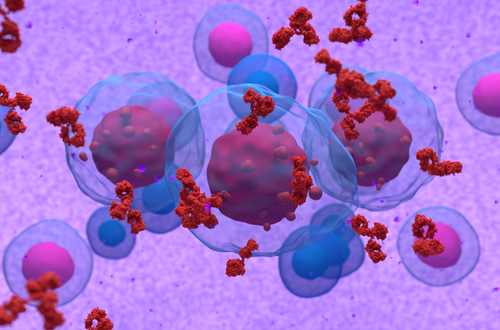Newsletter Signup - Under Article / In Page
"*" indicates required fields
GPCR Therapeutics, Inc., a drug discovery company targeting G Protein Coupled Receptors (GPCR) pairs, has started its phase 2 trial in the U.S. for its lead small molecule asset, GPC-100. GPC-100 targets CXCR4, one of the most prevalent chemokine GPCRs overexpressed in more than 23 cancers.
This randomized, open-label phase 2 study assesses the efficacy of GPC-100 and propranolol, with and without granulocyte colony-stimulating factor (G-CSF) for the mobilization of stem cells in patients with multiple myeloma undergoing autologous stem cell transplant.
Propranolol blocks beta adrenergic receptors, also part of the GPCR Therapeutics family of proteins. G-CSF is a glycoprotein that stimulates the bone marrow to produce granulocytes and stem cells and release them into the bloodstream. The trial is for up to 40 adult patients who will be enrolled at cancer centers in the U.S.
The trial will include 10 clinical sites, with the University of Massachusetts Chan Medical School selected as the first clinical site to be activated. Muthalagu Ramanathan will serve as the principal investigator. Trial completion is expected to be in the summer of 2024.
Novel strategies
Omar Nadeem, clinical director of the Myeloma Cellular Therapies Program at the Dana-Farber Cancer Institute, and a member of GPCR Therapeutics’ scientific advisory board, said: “This trial is studying novel strategies for stem cell collection in multiple myeloma, including a non-G-CSF approach and evaluating the role of propranolol in enhancing stem cell collection yield. This would allow for improved patient experience by making the process more efficient while limiting the toxicity of the currently utilized methods.”
Pina Cardarelli, GPCR Therapeutics’ CSO and president of U.S. operations, said: “This is a major milestone on our scientific journey to discover specific combinations of drugs that are more efficacious for cancer treatment, delivering better patient outcomes.”
Multiple myeloma
Multiple myeloma is a cancer that forms in a type of white blood cell called a plasma cell, which, when healthy, help fight infections by making antibodies that recognize and attack germs. In multiple myeloma, cancerous plasma cells accumulate in the bone marrow and crowd out healthy blood cells, no longer producing helpful antibodies, but abnormal proteins that can cause complications, such as bone pain and kidney abnormalities.
In 2019, more than 32,000 patients in the U.S. were diagnosed with this disease, with a median age of 68 years at diagnosis.
Oncology R&D trends and breakthrough innovations







